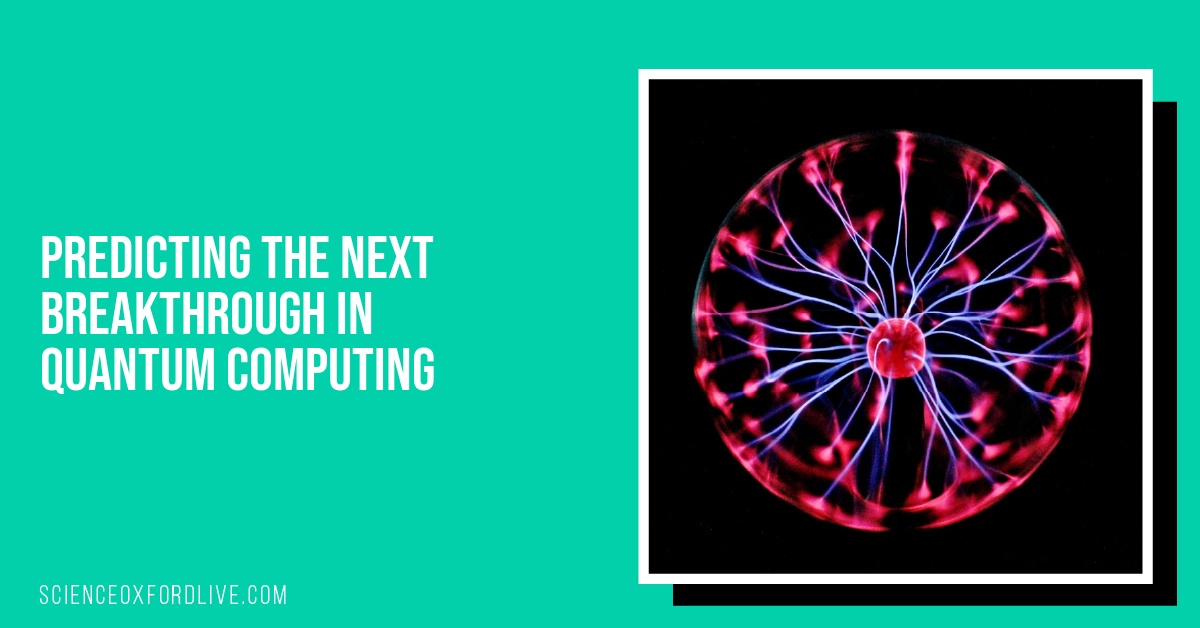The quixotic allure of quantum computing has captured the imagination of scientists, technologists, and futurists alike, ushering forth a paradigm shift in myriad domains. As we stand on the precipice of this technological renaissance, one may ponder: what lies beyond the forefront of quantum computer science? The future beckons with promising horizons, each gleaming like the nebulous stars in a clear night sky, hinting at profound metamorphoses across various disciplines.
First and foremost, it is essential to comprehend the mathematical foundation upon which the edifice of quantum computing is constructed. At its core, quantum mechanics defies classical logic, revealing a universe where particles exist in superposition—a bewildering state where they occupy multiple realities simultaneously. Quantum computers leverage this peculiarity, utilizing quantum bits, or qubits, to perform computations exponentially faster than their classical counterparts. However, this is merely the dawn of a more expansive exploration into quantum paradigms.
As we gaze into the future beyond quantum computers, the evolution of quantum networks emerges as a pivotal frontier. Envision a vast and intricate web that interlinks quantum devices, enabling unbreakable communication channels through quantum key distribution (QKD). Such networks promise not only enhance privacy but maintain the integrity of information against the backdrop of an ever-increasing digital landscape fraught with cyber threats. The sheer elegance of quantum entanglement ensures that any interception of information would be immediately detectable—a transformative leap in secure communications.
Accompanying the development of quantum networks is the intriguing prospect of quantum sensing. By harnessing the sensitivity of quantum states, scientists may develop sensors capable of detecting minuscule changes in gravitational fields, magnetic fields, or temperature variations. Such advancements could revolutionize fields ranging from geophysics to medical diagnostics. Imagine a future where quantum-enhanced MRI machines provide unparalleled imaging precision, unveiling the hidden intricacies of human anatomy with a clarity previously deemed unattainable.
Moreover, the integration of quantum computing with artificial intelligence heralds an epoch of unprecedented computational capability and innovation. Quantum algorithms can process vast datasets at lightning speed, enabling AI systems to recognize patterns and solve problems that currently paralyze classical systems. This union is not simply a marriage of convenience, but rather a synergistic relationship that transcends the sum of its parts. As an artist wields colors to craft evocative masterpieces, so too will researchers exploit this convergence to forge radical advancements in fields like drug discovery, where the molecular interactions may be simulated with exquisite fidelity.
Yet, the journey does not end here. As we delve deeper into the implications of quantum technologies, one cannot overlook the ethical quandaries and philosophical debates that will inevitably arise. The advent of quantum computing requires an exploration of the moral landscape, challenging our pre-existing notions of data ownership and privacy. It prompts a re-examination of the role technology plays in our lives, casting shadows over questions that have lingered through the ages. How do we wield this immense power responsibly? This dialogue will be pivotal in steering the trajectory of future developments.
In tandem with these advancements lies the pursuit of interdisciplinary collaboration—a hallmark of contemporary scientific inquiry. Quantum technologies will necessitate expertise from scholars across fields, from physicists and computer scientists to ethicists and legal practitioners. This confluence of disciplines mirrors a complex ecosystem where each strand interlocks, creating a rich tapestry of innovation. Cross-pollination of ideas will yield fresh insights and propel the science of quantum computing into realms beyond our imagination.
A pivotal aspect of this evolving landscape is, of course, the integration of quantum computing into the burgeoning field of quantum biology. This arena examines quantum phenomena that may underlie biological processes. For instance, the enigmatic mechanism of photosynthesis, long thought to be governed by chemical reactions, is now posited to involve quantum coherence, effectively bridging the chasm between physics and life sciences. This interface suggests not just a minor augmentation of our current understanding but a potential reconstruction of fundamental biological principles.
As we navigate these tantalizing prospects, we must also remain vigilant of the hurdles that lie ahead. The technical challenges of building scalable and fault-tolerant quantum computers cannot be overstated. The coherence of quantum states is notoriously ephemeral, and overcoming this obstacle will be essential for the realization of practical applications. Nonetheless, the relentless pursuit of innovators and scholars will undoubtedly inspire breakthroughs that will illuminate these dark corners.
Lastly, the quest for quantum supremacy, a term that evokes both awe and ethical scrutiny, compels humanity to grapple with the broader implications of this technology. As we edge closer to unlocking the full potential of quantum processes, society must contemplate the balance between the advantages bestowed by quantum computing and the potential risks associated with unequal access to such powerful technologies. A robust framework of regulations and ethical guidelines will be paramount to ensuring that the future crystalizes into one of equitable opportunity and sustainable progress.
In conclusion, the journey beyond quantum computer science is one laden with promise, as numerous avenues await exploration. The amalgamation of quantum networks, sensing technologies, AI integration, and interdisciplinary collaboration holds the key to unlocking a trove of innovations that could fundamentally reshape our understanding of reality. As we venture forth, it is imperative that we do so with wisdom, laden with the understanding that with great power comes great responsibility—a notion as timeless as science itself. The next chapter in our odyssey into the quantum realm beckons, and it is incumbent upon us to inscribe it wisely in the annals of progress.












